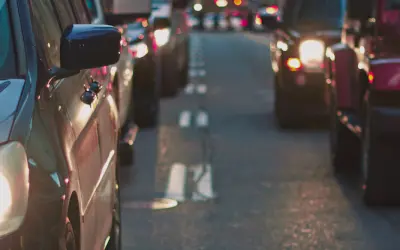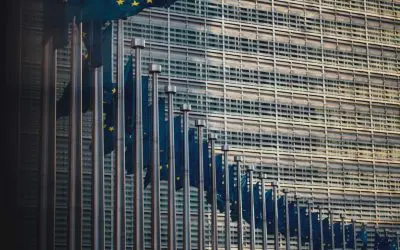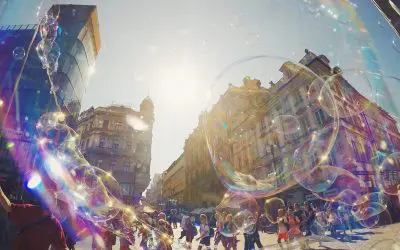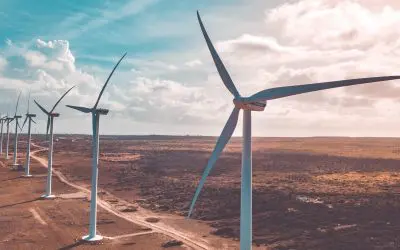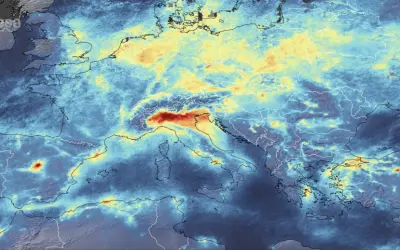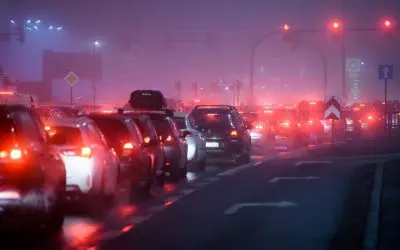Air pollution, health and COVID-19
Maria Viegas, Public Health Director European Medical Students’ Association (EMSA), Medical student and healthcare helper in a Portuguese hospital during the COVID-19 crisis writes why she has joined #medics4cleanair
The world’s and health workers’ attention is focused on the COVID-19 pandemic. Everyday, as a medical student, I practice in a Portuguese hospital where I face the cruel consequences of the epidemic, and I can see the direct damage on my patients. And many of them die, 82 people per day in Portugal. Every life matters. But this is still just the top of the iceberg of another lethal, but invisible crisis: polluted air.
Air pollution is a major threat to human health and numbers are shocking. According to the 2020 European Environment Agency (EEA) annual report on air quality, exposure to fine particulate matter (PM) caused about 417,000 premature deaths in 41 European countries. Another pollutant coming mainly from road transport that burns fossil fuels, nitrogen dioxide (NO2), caused 54,000 premature deaths in the European Union (EU) in 2018.
Evidence suggests that exposure to air pollution influences human vulnerability to COVID-19, “by aggravating co-morbidities [other health conditions] that could lead to fatal health outcomes of the virus infection”. Air pollution increases the risk of heart disease, stroke, cancers, dementia and diabetes, causes new asthma cases in children, and damages nearly every organ in our bodies. Many of the COVID-19 patients admitted to the hospital suffer from these chronic conditions.
Air pollution puts more patients in the hospital but it also makes our planet sick! Leading researchers and scientist send an alarming signal in their recently published 2020 Report of the Lancet Countdown on Health and Climate Change. On the eve of the five-year anniversary of the Paris Agreement, and as we look ahead to the 26th UN Climate Change Conference of the Parties, COP26, there are catastrophic consequences of delayed action for public health, but also the health, economic and societal benefits of a robust and rapid response. I think the need for focus on clean air is demonstrated as it is both a public health and climate emergency. The unsustainable transport sector is at the core of this issue.
This is the biggest epidemic we experience in our profession. While hospitals are facing shortages of medical equipment, while doctors and nurses are exhausted, and while overcharged healthcare systems rely on the help of medical students like me, national governments are pouring billions into bailing out polluting industries and transport systems responsible for harmful emissions.
Instead of focusing on people’s mobility needs and supporting active mobility, we still depend on fossil fuel-based transport. It is not compatible with our climate and health ambitions.
Being a doctor, nurse, pharmacist or other health professional, we are responsible not only for our patients but also for the well-being of our communities. They say “prevention is better than the cure” and now in the middle of these crises reinforcing each other, we cannot stay silent. We must stand up and act!
So, as a future medical professional I have decided to join my fellow colleagues in supporting the Medics for Clean Air campaign.
This medical professionals’ led campaign gives hope that our voice will be heard.
This is the future of Europe. Our movement could be a cornerstone of a future European Health Union.
I am honoured to be in the company of a European coalition of doctors, nurses, medical students, and other health professionals from all over Europe who have signed this Manifesto for urgent and sustainable actions to tackle air pollution.
On the frontline of dealing with the harmful effects of the internal combustion engine (diesel, gasoline, and natural gas vehicles), we are calling for action to protect our patients and our environment:
- Decision-makers to take note of the latest scientific evidence on health damages of air pollution, as a basis for any future clean transport policy;
- The EU and national governments to end the sale of new diesel and petrol vehicles by 2028, while phasing out existing polluting vehicles from urban areas;
- A shift from car-based cities to walking, cycling, and public transport, wherever possible.
The more healthcare professionals which join, the more our voices can be heard to ensure a sustainable, clean air future for us all.
As Christmas approaches, I wish the present of good health to all Europeans. The best way to make it a reality is to improve the air we breathe, and as a result our health and our environment.
All I want for Christmas is to breathe clean air!

